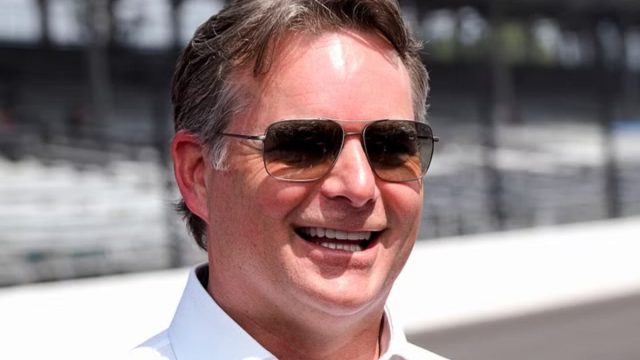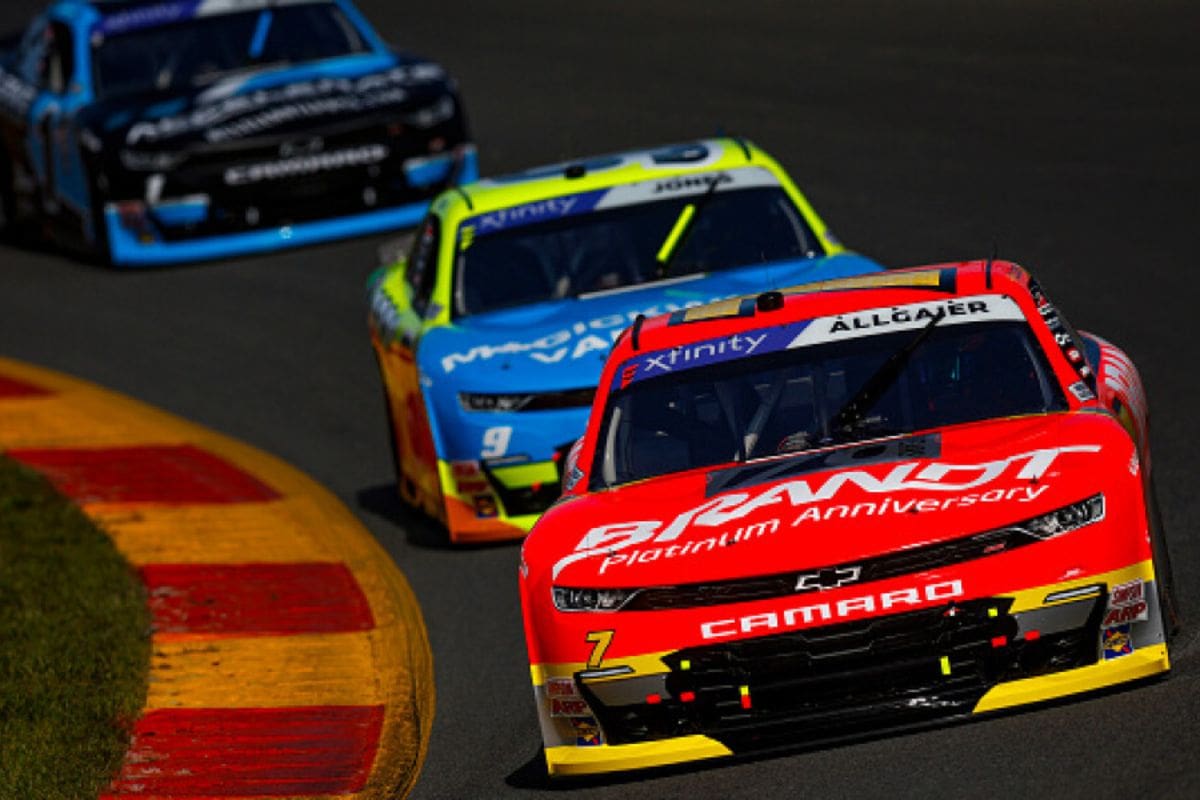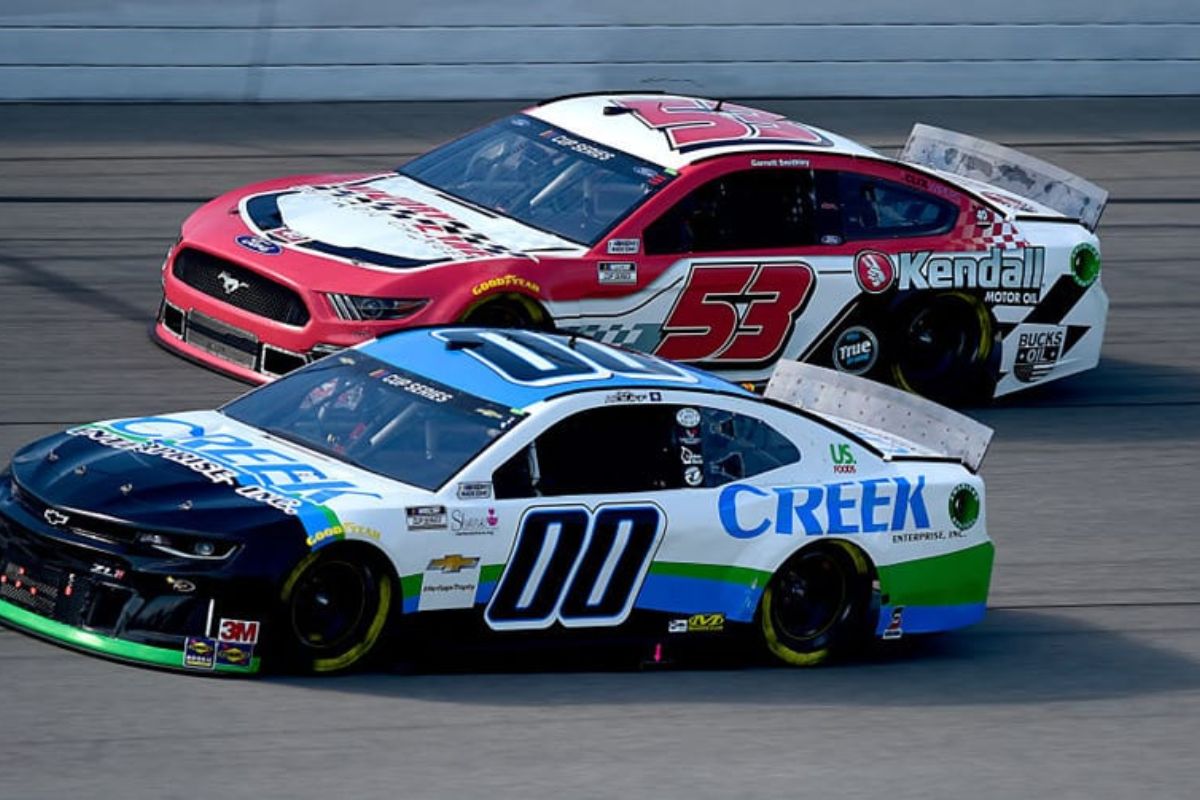NASCAR’s 2013 Richmond Conspiracy: The unexpected inclusion of Jeff Gordon in the 2013 NASCAR Chase serves as a compelling case study in the sport’s navigation of ethical dilemmas following the Richmond race controversy. Allegations of collusion and tactical manipulation by competitors, NASCAR’s decisive action rescued Gordon’s championship aspirations and in the governing body’s commitment to maintaining integrity within the sport. This incident raises critical questions about the balance between competitive tactics and ethical conduct, prompting a closer examination of the broader implications for NASCAR’s reputation and future governance.
Key Highlights
- Jeff Gordon’s performance in the 2013 Richmond race was overshadowed by manipulative tactics employed by other teams to secure playoff spots.
- NASCAR’s investigation revealed collusion and intentional actions that compromised the integrity of the race and playoff qualifications.
- Following the scandal, NASCAR added Gordon as the 13th driver to the Chase, emphasizing their commitment to fairness.
- The incident led to NASCAR implementing stricter regulations and oversight to prevent future integrity breaches within the sport.
- Gordon’s inclusion in the Chase revitalized his championship prospects and highlighted NASCAR’s dedication to equitable competition amidst controversy.
Austin Dillon’s Incident at Richmond Raceway and NASCAR’s Response
Austin Dillon’s controversial maneuver at Richmond Raceway discusses about the integrity of NASCAR’s playoff system and the governing body’s ability to enforce fair competition. By intentionally taking out competitors Joey Logano and Denny Hamlin to secure his playoff spot, Dillon’s actions have drawn parallels to previous instances of perceived collusion and manipulation in the series.
This incident emphasizes a troubling trend where drivers have increasingly resorted to dubious tactics as the playoff format has evolved.
NASCAR officials found themselves in a particularly challenging position in response to Dillon’s actions, as they had to weigh the implications of a driver for what many viewed as a tactical move within the competitive framework. The unprecedented nature of NASCAR’s decision-making in this situation highlights the difficulties faced by the governing body in maintaining the integrity of the sport.
Historical precedents, particularly the 2013 race-fixing scandal involving Team Penske and Front Row Motorsports, demonstrate that this is not an isolated incident but rather a recurring issue within the sport.
As NASCAR with these challenges, the call for stronger enforcement of rules and clearer of acceptable competitive behavior becomes increasingly urgent. The integrity of the playoff on the ability of officials to act decisively against violations, ensuring that the spirit of competition remains intact.
The 2013 Richmond Race and NASCAR’s Intervention
The controversy surrounding Austin Dillon at Richmond Raceway echoes a significant moment in NASCAR history—the 2013 Richmond race, which prompted the governing body to take decisive action. This event became a watershed moment for NASCAR, as it revealed the lengths to which teams might go to secure playoff spots, leading to a notable intervention by officials.
During the race, Team Penske, desperate to maintain their playoff status, allegedly engaged in tactics that compromised the integrity of the competition. The ramifications were immediate, most importantly affecting Jeff Gordon, whose performance was overshadowed by these machinations. Ultimately, Gordon’s consistent efforts were undermined, as he finished 8th, while Joey Logano’s 22nd-place finish allowed him to clinch a playoff berth by a mere single point.
NASCAR responded with unprecedented action, invoking a sense of fairness and accountability within the sport. They added Jeff Gordon as the 13th driver to enter the chase, setting a crucial precedent for future interventions.
Team Penske and Front Row Motorsports’ Tactics
Collusion in competitive sports undermines the very essence of fair play, and the alliance between Team Penske and Front Row Motorsports (FRM) during the controversial 2013 Richmond race exemplifies this troubling phenomenon. In a calculated maneuver to improve Joey Logano‘s chances of qualifying for the Chase, Team Penske sought the assistance of FRM, revealing a disconcerting willingness to manipulate race outcomes. The collaboration hinged on FRM driver David Gilliland, who was tactically positioned to concede his racing position, thereby facilitating Logano’s ascent.
The radio communications between Gilliland and his crew, particularly the phrase “They better pay big,” underscore the transactional nature of this partnership. Such remarks demonstrate a troubling expectation of reciprocity rooted in a clear understanding of the unethical arrangement. The notion that FRM drivers could secure future favors in exchange for their complicity not only tarnishes the integrity of the sport but also raises questions about the ethical landscape within NASCAR.
This effort was not merely a lapse in judgment; it showcased a systemic betrayal of the sport’s competitive principles. The ensuing investigation by NASCAR served as a necessary response to preserve the sanctity of the competition.
Ultimately, placing both Team Penske and FRM on probation signaled a commitment to enforcing regulations against such unsporting conduct. “It’s not the spotter, it’s the whole committee, This episode serves as a glaring reminder of the lengths to which teams may go to gain an advantage and the critical need for ongoing vigilance in maintaining the sport’s integrity.
NASCAR’s Response and Jeff Gordon’s Entry Into the Chase
In the wake of the controversial events surrounding the 2013 Richmond race, NASCAR’s response was both decisive and necessary to uphold the integrity of the sport. The situation prompted NASCAR’s leadership to act swiftly, ensuring that fairness and transparency remained cornerstones of the competition.
Following investigations that revealed manipulative tactics affecting the race’s outcome, NASCAR CEO Brian France articulated the organization’s commitment to justice. He stated, “We believe that there were too many things that altered the event that gave an unfair disadvantage to Jeff and his team, who would have qualified. It’s just the right thing to do.”
September 13, 2013: Jeff Gordon was added to the playoffs as an extra driver to offset race manipulation by numerous teams pic.twitter.com/K0V47xS8w6
— nascarman (@nascarman_rr) September 13, 2024
This intervention paved the way for Jeff Gordon’s entry into the Chase, a move that not only revitalized his championship prospects but also rejuvenated the competitive landscape of NASCAR.
Gordon, a veteran driver revered for his skill and resilience, benefited from this decision, which highlighted NASCAR’s dedication to equitable competition. The gravity of the situation was amplified by the backdrop of the Spingate scandal, which further tested NASCAR’s regulatory framework.
Michael Waltrip Racing’s Spingate Scandal
Manipulating the outcome of a race can have severe consequences, as demonstrated by the “Spingate” scandal involving Michael Waltrip Racing (MWR). In a bid to secure a playoff spot for Martin Truex Jr., MWR orchestrated a controversial crash involving Clint Bowyer, who intentionally spun out to trigger a late-race caution. This allows Truex to qualify for the Chase, a decision that ultimately cost Ryan Newman his rightful place.
The implications of this scandal were profound. NASCAR’s investigative process revealed a secret radio communication that confirmed Bowyer’s spin was not accidental but a calculated move. The infamous message, “Is your arm starting to hurt? Must be hot in there,” became a symbol of deception. Following a thorough investigation, NASCAR acted decisively, imposing considerable penalties on MWR.
| Penalty Type | Details | Impact on MWR |
|---|---|---|
| Monetary Fine | $300,000 | Financial strain |
| Driver Points Docked | 50 points for Truex, Bowyer, Vickers | Playoff disqualification |
| Crew Chief Reprimands | All three crew chiefs placed on probation | Loss of credibility |
| Owner Points Docked | 50 points per team | Long-term competitive disadvantage |
These consequences ultimately contributed to the decline of MWR, which ceased operations just two years later. The Spingate scandal serves as a cautionary tale about the fragility of integrity within competitive sports, reinforcing NASCAR’s commitment to preserving fair competition.
News in Brief: NASCAR’s 2013 Richmond Conspiracy
The events surrounding Jeff Gordon’s last-minute entry into the 2013 NASCAR Chase highlights the delicate balance between competition and integrity within the sport. The Richmond race scandal a critical reassessment of racing tactics and highlighted NASCAR’s commitment to upholding fairness. Gordon, NASCAR signaled a decisive stance against unethical practices, reinforcing the necessity of trust in competitive environments. This incident ultimately serves as a pivotal moment in the ongoing evolution of NASCAR’s regulatory framework.
ALSO READ: Jeff Gordon Highlights HMS Star’s Vintage Treasure, Exposing NASCAR’s Changing Times



